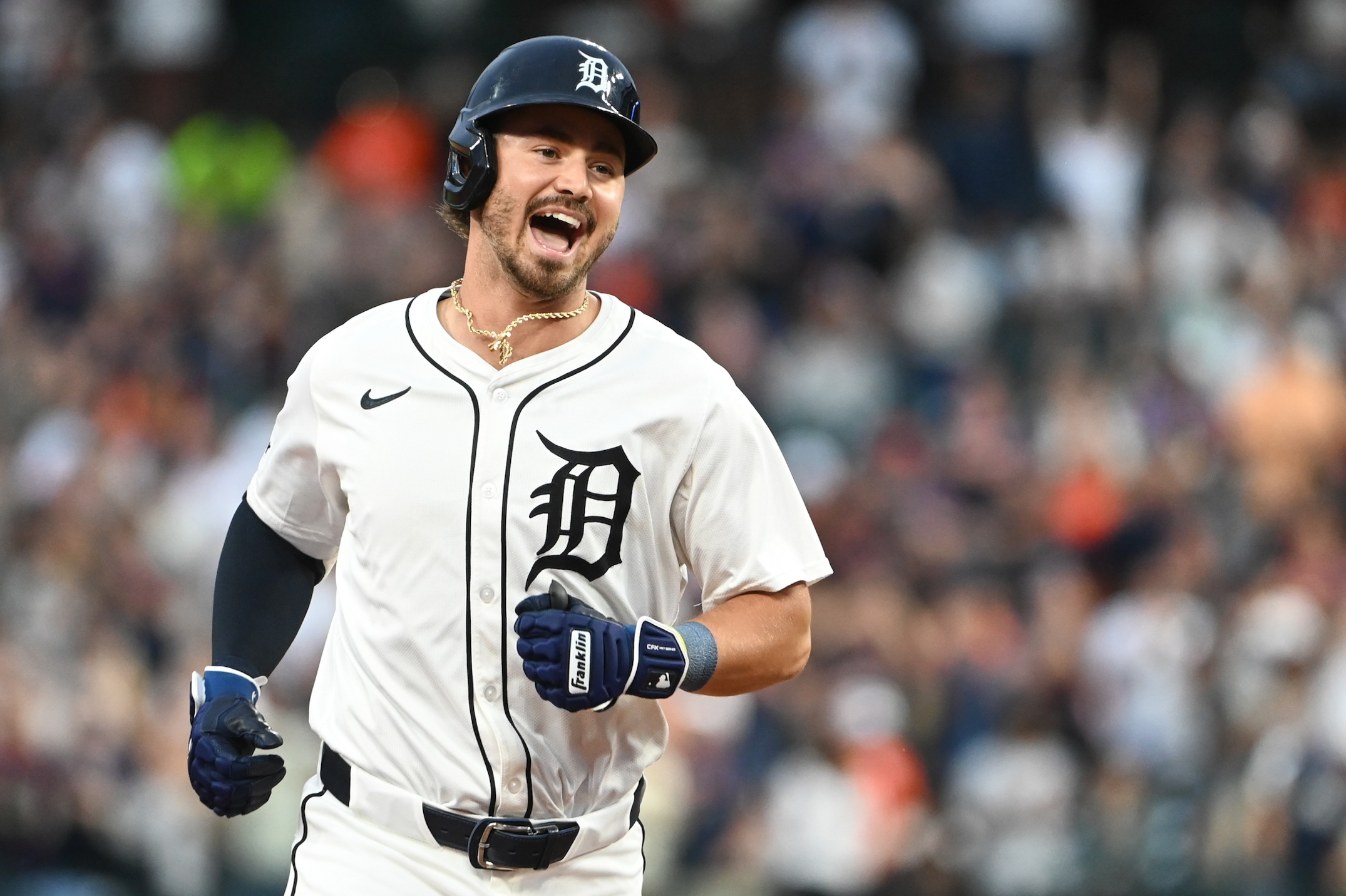I recently started the seminal baseball book Ball Four, Jim Bouton's diary of the 1969 season. As the book opens, Bouton is staring down the last days of his career. He was a young star for a couple of seasons with the Yankees, but his failure to live up to that early promise got him banished to the godforsaken expansion Seattle Pilots. From the very first pages, Bouton writes like a grizzled old man who's seen it all, rueful about past contract negotiations and nostalgic for rowdy pranks. Immediately, I was picturing a narrator who carried with him the weight of experience. Someone like Gandalf. Or King Lear. Or Rich Hill.
Then I reached this jump scare, dated March 7: "Okay, boys and girls, tomorrow is my birthday and I'll be thirty years old." Yes, at the time of that writing, washed-up Jim Bouton was younger than I am today. The lesson? Baseball makes you old very, very quickly.
Zach McKinstry turned 30 six days before I did, back on April 29. At that time, I would have said I had him figured out as a baseball player, and I appreciated him for exactly what he was. McKinstry has not been a good hitter at the Major League level. He's been just about the definition of mediocre, never putting up an OPS above .668, a batting average above .231, or a home-run total above nine. But he's stayed in the league because he's a shape-shifter on defense. In his first five games of this season alone, he played shortstop, second base, third base, right field, and left field. Even if he's a negative with the bat, that flexibility made him a valued member of a good ballclub.
That made me, as a Tigers fan, like Zach McKinstry a lot, maybe more than any other hitter on the team. It can stress me out when I expect a guy to succeed at the plate. I'd rather be pleasantly surprised. And every time McKinstry reached base, it was a pleasant surprise. His fielding, which kept his WAR above water, was the way to measure his contributions to the team—anything else was just a bonus. He was not a pillar of the lineup, just a guy who had a job and did it the best he could.
This season has been different. Not only do the Tigers own the most wins of anyone in baseball, but McKinstry has been one of the best hitters they've got. He's not smashing pitches any harder than he used to, or even making contact more often. But he's been connecting with the ball just right, consistently sending liners over the infield for a team-best batting average of .286. Those balls in play are also giving him a chance to stretch his legs, and he's behind only Corbin Carroll and Jarren Duran with eight triples to his name.
The savvy baseball fan does not put all that much stock in a half-season hot streak from a player who spent his 20s showing the world his ceiling. There is no particular reason, other than an optimistic demeanor, to assume that McKinstry has transformed himself in the long term. But whatever happens after this month, he has earned a very tangible honor. With Astros shortshop Jeremy Peña injured, McKinstry was named as the Tigers' fifth all-star. While it would have been tricky to vote him in at any one position, his inclusion as a utility guy is a nice touch. It's the kind of thing that makes me sentimental about baseball, even if it also make me feel prematurely ancient. Sometimes, good work pays off.
“I’ll bring two [gloves] with me, the outfield and the infield glove,” McKinstry said on Wednesday. “We’ll keep the first-base one in the locker.”
In Ball Four, Bouton confesses to having fantasies about winning the Comeback Player of the Year award as a World Series champion. (I imagine Javy Baez, another Tigers all-star, is seeing those visions pretty clearly now.) I already knew enough about Bouton to know that didn't happen. I knew his writing made him far more enduringly famous than his career on the mound. At 30 years old, it was just about time for him to change professions. But you only learn when it's time if you keep hanging on for as long as you can.






